Text
Magazine & Advertising Portrayals
Magazines are at the forefront of the media and their portrayal of women can be harmful to those who view them. A study showed that women’s bodies are shown 4 times more than men’s are in magazines. It also has been discovered that these magazine portrayals of women are more focused on their body parts than they do their faces. Within advertising it is also found that women are often portrayed in submissive roles. Having sexual portrayals of women plastered in advertising and magazines perpetuates the sexualization of women.
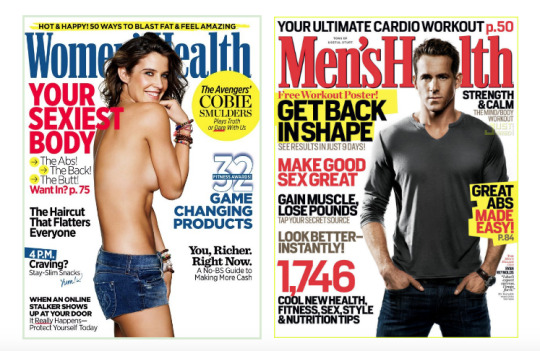
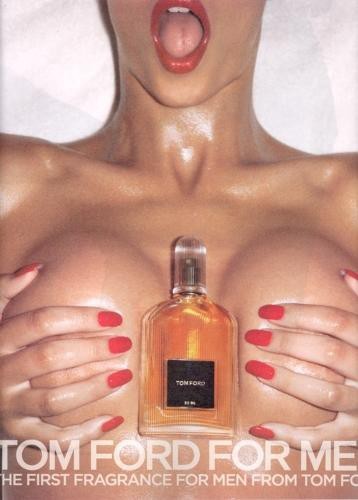
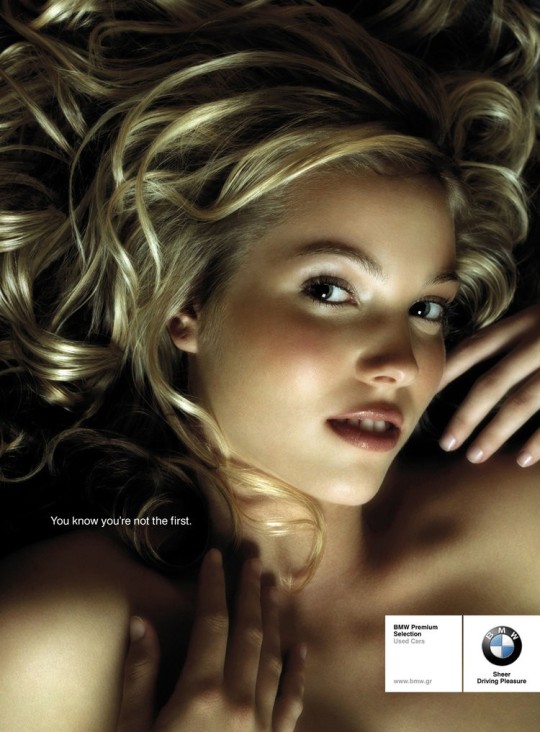
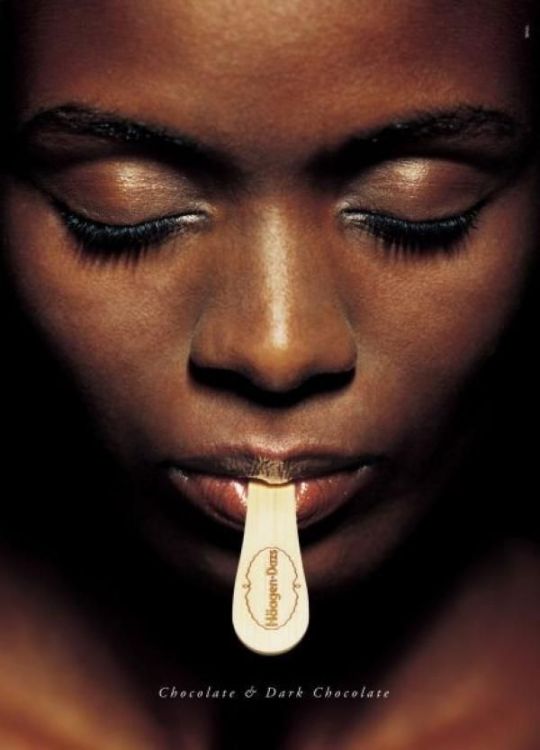

0 notes
Text
Millie Bobby Brown
Millie Bobby Brown rose to fame at just 12 years old when Netflix’s Stanger Things premiered. Brown has been nominated for an Emmy for her portrayed of “Eleven” in the series. Having turned 18 this past February, Brown is no stranger to uncomfortable comments surrounding her age.
Brown became friends with rapper, Drake, in 2018, despite their 18 year age difference. The stars were fans of each other’s work which then turned into a solid friendship. This friendship concerned many people, inciting uncomfortable comments insinuating that Drake was “creepy” and had “ulterior motives.” Some even went as far to say that Drake was “grooming” Millie. In response to these comments, Millie stated in an interview,"Why u gotta make a lovely friendship ur headline? U guys are weird." Brown claimed that Drake was someone who has helped her navigate the entertainment industry, offering his "wisdom and guidance." Millie was only 14 at the time that people were sexualizing her and turning her friendship with Drake into something completely inappropriate. Although some of the comments may have been made out of sheer concern for the young star, the comments did not have to go as far as they did.
When Millie turned 18 in 2022, she opened up about the oversexualization that she has faced in the media. Mara Wilson, another child actor, expressed her concern over Brown after she read a slew of inappropriate comments about her. An article from Buzzfeed touched on this stating, “After reading tweets from grown men about Millie, who is a teenager, Mara said that she ‘felt sick’ and then ‘furious.’ ‘What’s really at play here [is] the creepy, inappropriate public inclination to sexualize young girls in the media’ she wrote.” This same article touches on an interview that Millie had with Deborah Frances-White and Susan Wokoma, just a few weeks after she turned 18. Millie stated that she had “definitely been dealing with [being sexualized] more within the last two weeks of turning 18 — definitely seeing a difference between the way people act and the way that the press and social media have reacted to me coming of age...It’s a very good representation of what’s going on in the world and how young girls are sexualized. I have been dealing with that — but I have also been dealing with that forever.” When Millie posted photos from her 18th birthday (seen below), the comment section was full of disturbing sexual comments.

There was also a forum posted to Reddit that had a “NSFW” warning attached to it that stated it would not be open to the public until Brown’s 18th birthday. A Reddit user explained that the page was intended to post “sexual images” of the child star once she was of legal age. Prior to the forum being banned, it had amassed over 6,000 subscribers. A screenshot of the forum can be seen below.

0 notes
Text
Billie Eilish
Billie Eilish is a 20-year-old singer-songwriter who has been facing sexualization since she was a minor. Eilish is a prime example of a young woman who has been faced with oversexualization in the media, despite not wanting to be.
Billie Eilish rose to fame at the young age of 13 with her hit song, “Ocean Eyes.” Since the start of her career, Billie has also been known to sport baggy and conservative clothing. She was often asked why, because this is not the typical wardrobe of a young teen girl. Eilish has addressed her fashion choices a multitude of times and in 2019 stated, “Nobody can have an opinion because they haven’t seen what’s underneath. Nobody can be like, ‘she’s slim-thick’, ‘she’s not slim-thick’, ‘she’s got a flat ass’, ‘she’s got a fat ass.’ No one can say any of that because they don’t know” (2019). Eilish purposefully dresses so that she can avoid sexualization from the media/others, but unfortunately it still happens.
In June 2019, prior to Eilish turning 18, she was photographed in a tank top for the first time, and her chest was trending on Twitter, alongside news outlets reporting on the matter. Being that this was one of the first times Billie was seen wearing tighter clothing, the public went crazy. Comments about her body were all over social media, most of the comments surrounding how “thick” she is. Eilish was just 17 at the time of this incident.
Billie Eilish being sexualized for wearing a tank top is an example of a young woman being sexualized against her will. Eilish has repeatedly expressed her distaste for being perceived as a sexual object. Something as simple as a tank top can be enough for people believing they have a right to sexually comment on someone’s body.
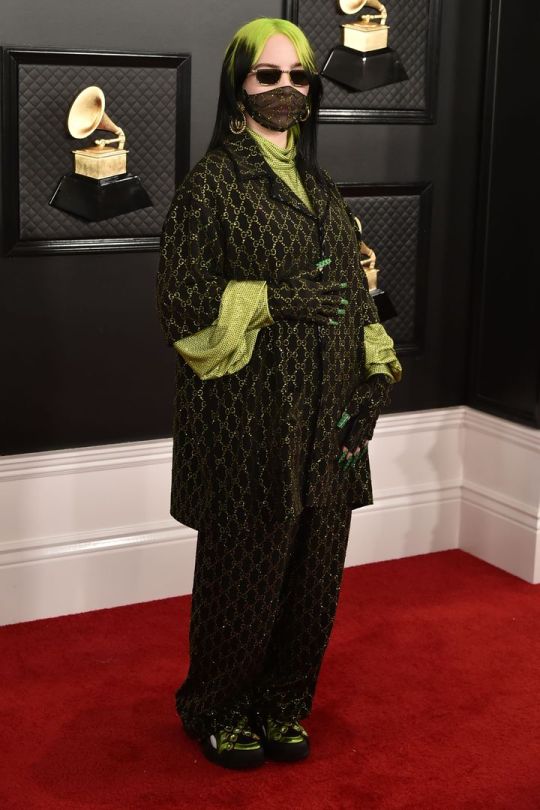
How Eilish normally dresses (above). The tank top that Eilish was sexualized for (below).
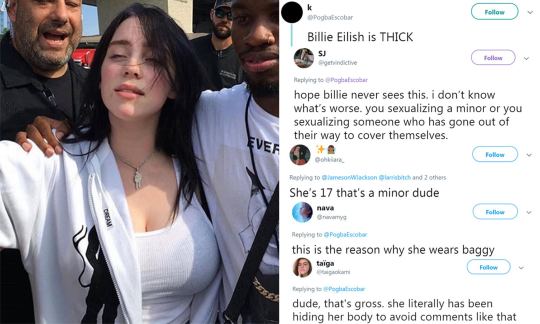
0 notes
Text
Kylie Jenner
Kylie Jenner, 24, is a globally-known famous member of the Kardashian-Jenner clan. Kylie began making appearances on her family’s hit reality show, Keeping Up With the Kardashians, when she was only 9 years old. Her older sisters, Kim, Khloe, and Kourtney Kardashian were already well established in Hollywood, and were known for their sex appeal. Kim Kardashian got her rise to fame after her sex-tape with then boyfriend, Ray J, was leaked, setting the stage for the media’s oversexualization of the entire family.
Kylie Jenner began dating rapper, Tyga (pictured below), when she was only 17 years old and he was 25. This lead to a media frenzy since Kylie was not even of legal age yet. Tyga began releasing sexually explicit songs with lyrics such as, “boutta catch a felony for it.” When Kylie was just freshly 18, Vivid Entertainment, the company who released her older sister’s sex tape in 2007, reportedly offered $10 million to Jenner and Tyga to make a sex tape. BangYouLater, another pornographic entertainment company, offered Jenner $1.8 million for a tape. An article from TheDailyBeast touched on this matter, stating, “A 25-year-old man having consensual sex with a 17-year-old girl is still concerning. But I’m just as grossed out by bloggers asking “will Kylie Jenner follow in her big sister’s footsteps by trying to break the Internet with a nude photo?” or spending a day in front of the computer compiling “18 times Kylie Jenner looked way older than 18.”
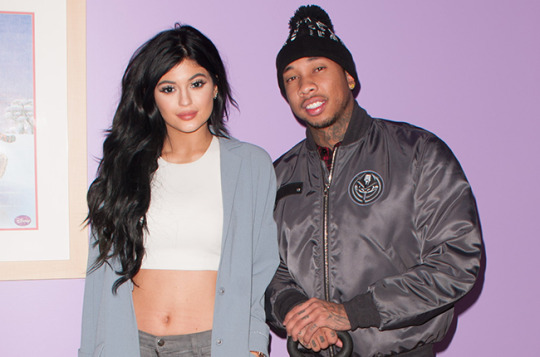
It is no secret that Kylie Jenner has had a lump some of plastic surgery procedures to alter her body, despite her not discussing it. However, it is no secret that the oversexualization of her and her entire family had contributed to her wanting to change her looks. Plastic surgery should not be viewed as a negative and if it makes someone more confident, they should do whatever they want to do. As stated previously, her sisters have always been known for their beauty and sex appeal, which may have contributed to Kylie wanting to emulate them. It is rumored that Kylie has had a “Brazilian butt-lift”, also known as a “BBL”, amongst other fillers and procedures. Since getting these modifications, Kylie has been universally seen as a sex symbol. A few (of many) headlines surrounding the star include, “Kylie Jenner Flaunts Boobs and Big Booty in Sexy Bikini Pics! See her Resemblance to the Kardashian Butts”, “Kylie Jenner’s 16 Most Seductive Instagrams”, and “Kylie Jenner: Her Sexiest Pics Ever.”
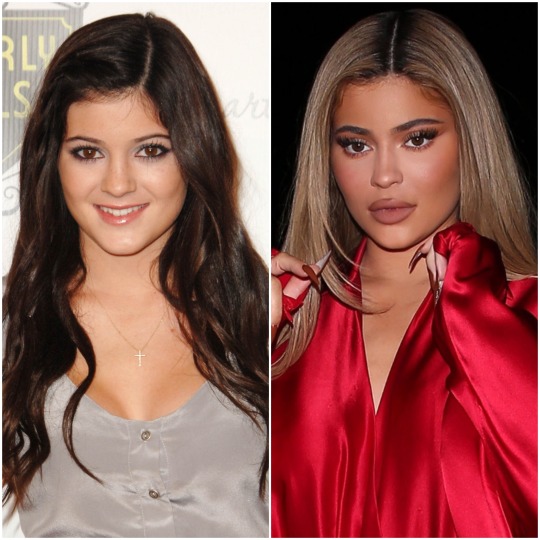

1 note
·
View note
Text
Ariana Grande
Twenty-eight year old Ariana Grande has been in the public eye since she was just 13 years old. Grande, who started off on Broadway, transitioned into a tv star on Nickelodeon’s Victorious, and then later went on to become one of the biggest pop stars in the world. Grande, like every other famous woman, is no stranger to objectification and oversexualization.
The media has had a field day with sexualizing Ariana Grande since she was a child star and even more so when she is in a romantic relationship with a man. Grande discusses a real-life encounter that she had in a Twitter rant that she posted in 2016, regarding an interaction that her and her then boyfriend, Mac Miller (pictured below), had with a fan. A male fan had approached Grande and Miller to tell Miller how big of a fan he was. He then said to the rapper, “Ariana Grande is sexy as hell man I see you, I see you hitting that!”. Grande expressed how horrified she was over the situation stating, “This may not seem like a big deal to some of you but I felt sick and objectified. I’ve felt really quiet and hurt since that moment. Things like that happen all the time and are the kinds of moments that contribute to women’s sense of fear and inadequacy. I am not a piece of meat that a man gets to utilize for his pleasure. We need to share and be vocal when something makes us feel uncomfortable because if we don’t, it will just continue” (2016).
Following this incident, the media attempted to discredit Grande’s experience. An article from the Washington Examiner stated, “The problem with Ariana Grande complaining about being objectified is that she invites objectification when it makes her money, but condemns it when it makes her uncomfortable. She cannot pick and choose when she would like to be sexually objectified while branding and selling herself as a sexual object.” This type of thought process that is common in the media invalidates women’s experiences and perpetuates the idea that a woman’s body does not belong to her. Grande sexualizing herself through her art is her own choice and is acceptable, others making horrifying comments on her body is not something that should happen. The media is obsessed with women and their sex appeal, but condemn women for speaking up about the damage that it does to them.

Grande has always been very vocal about the mistreatment of women not just in the media, but in real-life as well. Grande stated in an interview with Billboard, “If you’re going to rave about how sexy a male artist looks with his shirt off and a woman decides to get in her panties or show her boobies for a photo shoot, she needs to be treated with the same awe and admiration.” Grande even released a song, “God is a Woman”, in 2018 that is intended to empower women. The song was accompanied by a music video that incorporated feminist imagery like that of her *physically* breaking a glass ceiling as well as a recreation of Michaelangelo’s “Creation of Adam”, where a woman replaces Adam.

0 notes
Text
Britney Spears
Although the sexualization of a young Britney Spears is not a more recent example of oversexualization in the media, her story is a pivotal one, and can be argued that she has set the stage for how the media treats young stars now.
Britney’s first pop hit was “Baby One More Time”, and it was released when she was just 17 years old in 1998. Spears exploded in the media and was continually sexualized, even when she was still a minor. In the music video for “Baby One More Time”, Spears is seen sporting a school-girl uniform, to which the media had a field day with. Spears discussed her oversexualization in an interview, stating, “There are so many other teenagers out there that dress more provocatively than I do and no one says anything about them…I don’t see myself as a sex symbol or this goddess-attractive-beautiful person at all. When I’m on stage, that’s my time to do my thing and go there and be that — and it’s fun”
In her 1999 Rolling Stone article (pictured below), Spears also claps back at critics who were sexualizing her “Baby One More Time” video. The article states, “Admittedly, that trap is carefully baited by a debut video that shows the seventeen-year-old singer cavorting around like the naughtiest of schoolgirls. But, as Spears points out, nothing is actually revealed. ‘All I did was tie up my shirt!’ she says, addressing the critics who would hunt her down. ‘I’m wearing a sports bra under it. Sure, I’m wearing thigh-highs, but kids wear those — it’s the style. Have you seen MTV — all those in thongs?’” (Rolling Stone).
Britney’s creative choices as an artist were continually met with backlash and criticism that surrounding her sexual representation. Despite stating a multitude of times that she did not want to be viewed as a sex icon, the media continued to push this image of her regardless of her young age. The media coined Spears as a sexual object, but then continued to shame her for it. Spears was seen as a “bad role model” and “bad example for young girls.” The media mistreatment of Britney Spears went on for decades, which eventually led to her very public mental breakdown which resulted in her being forced into a conservatorship that only recently ended.
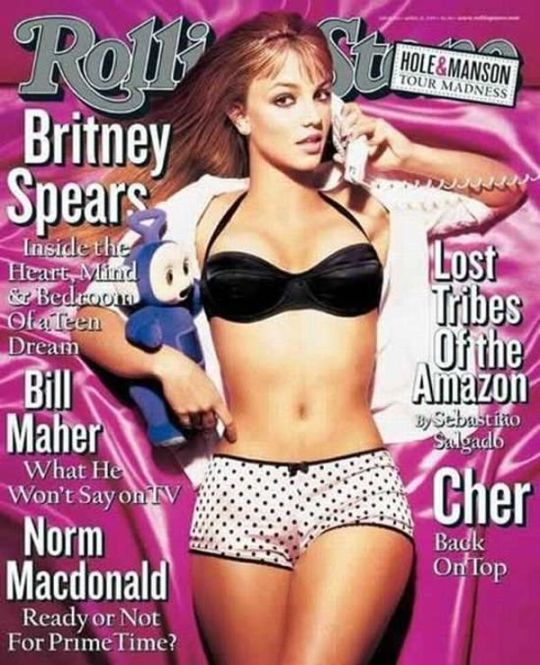
Spears on the cover of The Rolling Stone as a minor with the headline “Britney Spears: Inside the Heart, Mind & Bedroom of a Teen Dream”
0 notes
Text
Mental Health Repercussions
Sexualization of women occurs at all ages, and by targeting young women, they are then being faced with societal pressures to fit the standard of being sexually attractive. Women are being taught from very young impressionable ages that there are standards that must be met in order to be “wanted” by men. When young women are viewing all of these unrealistic portrayals of sexualization in the media, it can lead to insecurities, internal conflict, self-hatred, and feeling pressured to change themselves to fit the standard.
The American Psychology Association released a report in 2007 that discussed the repercussions that over-sexualizing women in the media has on young women. In this report they found that sexualization and objectification undermine a person's confidence in and comfort with her own body, leading to emotional and self-image problems, such as shame and anxiety. This research also links sexualization with three of the most common mental health problems diagnosed in girls and women: eating disorders, low self-esteem, and depression. APA’s research also showed that this type of media content has a negative impact on young women’s personal sexual development. This research suggests that the sexualization of girls has negative consequences on girls' ability to develop a healthy sexual self-image.
Young women may start to feel like they need to change themselves in order to better suit these unrealistic standards that the media holds women to, leading to plastic surgery, unsafe diets, etc.
0 notes
Text
Sexualizing Oneself vs. Being Sexualized
Sexualizing oneself means to intentionally engage in activities that appear more sexually appealing. This is something that everyone has a right to do, and should be celebrated for.
Being sexualized is when one is attributed sex/sex appeal by others.
Younger women, those who haven’t even turned 18 yet, are prime victims to being sexualized in the media. Stars like Billie Eilish, Millie Bobby Brown, Kylie Jenner, and Britney Spears are just a few examples.
Society typically expects women to be sexually communal (submissive/passive) and accordingly rewards women for such behaviors. Some examples of women’s more sexually communal behaviors are associating sex with complying and submitting, not communicating one’s own desires, and consenting to unwanted sexual activities in relationships. In other words, women are expected to follow whatever a man wants and appease him, rather than sexually express herself. Women are constantly being “toned down” by men and shamed for speaking up and expressing herself in the ways that she wants to.
0 notes
Text
Men vs. Women
Society expects men and boys to be sexually active, dominant, and the initiator of sexual activity, whereas women and girls are expected to be sexually reactive, submissive, and passive. This is why women are often slut shamed for purposefully sexualizing themselves, and men are deemed as “heart throbs.” It is a societal norm that it is acceptable of men to be sexual, but not for women, despite women being more sexualized than men. Women and men are held to completely different standards.
The University of Buffalo conducted a research study that looked at the magazine, The Rolling Stone, and analyzed its content. The findings of the study showed that 83% of all of the women featured in the magazine were sexualized, in contrast to 17% of men. The study also concluded that within those statistics, women were 1000% more likely to be featured in “hyper-sexualized images.” These women were being defined as images objectifying the subjects by portraying them as “ready and available for sex” rather than just “sexy” and “attractive.”
Heterosexual double standards contribute to the oversexualization of women in media. Femininity and sexuality is demanded, but shamed at the same time. Men and women get treated differently for the same sexual behaviors. A study shows that 50% of women experience slut-shaming while only 20% of men experience it.
Men and women are both sexualized in the media, yes, but women experience it much harsher and much more often. The difference between the sexualization of men and women also boils down to people’s reactions to the sexual content. Sexual content that surrounds women goes hand in hand with the oppression and sexism that women have faced since the beginning of time. Meanwhile, men are being praised for being “sexy”, not shamed.
0 notes
Text
The Oversexualization of Women
When the media sexualizes young women who happen to be in the public eye, they are perpetuating the idea that a woman’s value is directly derived from her sexuality/sex appeal. This leads to all of her other attributes and characteristics to be swept under the rug, almost like they do not even exist.
Women are under constant pressure to express themselves in a sexy way in order to receive validation from the opposing gender/appease their audiences. The media demands femininity and sex appeal. The oversexualization of women in the media is also believed to have been derived from the “male gaze.” This term was coined in 1973 and it describes the phenomenon of men projecting their sexual desires onto women. After viewing a TikTok comment section where men were making sexual comments about an underage girl’s body, Ash Wright discussed the phenomenon of the male gaze. Wright states, “People talk about the female gaze versus the male gaze, but I feel like men will over-sexualize each other just for fun, as a joke,” Wright said. “Boys will comment on other boys’ posts, but it’ll be totally joking. But for women, when [men] comment, it’s just really gross and obscene.”
It is quite ironic that women who are in the public eye are often sexualized by media outlets, audiences, etc., but when women take matters into their own hands and sexualize themselves, they are shamed and labeled as a whore, slut, etc. It is essentially a lose-lose situation.
Sexual Priming also plays a role in the objectification of women in the media. The term, “sexual priming”, refers to the unconscious exposure to sexual content which causes you to subconsciously think about sex and/or sexual situations. Technology has given people easy access to sexual content through social media, news outlets, advertisements, tv shows, movies, etc. Often times, sexual content presents itself without it being sought out.
0 notes
Text
Key Terms to Focus On
This blog will explore the oversexualization of women in the media and explain the effects that this treatment can have. Gender inequality is an issue that still runs rampant in the real world as well as the media. Women are often chalked up to be nothing more than objects and sexual beings, while men are praised for doing the same things that women are shamed for. There a key terms that these posts will use including:
Sexualization/Oversexualization
Sexualization is when sex is attributed to something or someone. Oversexualization is when something or someone is being excessively sexualized.
Objectification
Objectification is the action of degrading someone to the mere status of an object.
Slut Shaming
Slut shaming is the act of stigmatizing a woman for engaging in behavior that is judged to be promiscuous or sexually provacative.
Sexual Double Standards
A sexual double standard refers to judging heterosexual men and women differently for the same sexual behavior.
Sexual Priming
The unconscious exposure to sexual content which causes on to subconsciously think about sex and/or sexual situations.
This blog was created using research from a multitude of sources/articles including:
Davis, S. E. (2018). Objectification, Sexualization, and Misrepresentation: Social Media and the College Experience. Social Media + Society. https://doi.org/10.1177/2056305118786727
Ford, R., & Matthews, E. (2021). The Hypersexualization & Exploitation of Britney Spears in the Media. RTF Gender and Media Culture. https://rtfgenderandmediaculture.wordpress.com/2021/07/01/__trashed-5/
Herndon, A. Over sexualization of women in the media and its ... - stars. Retrieved from https://stars.library.ucf.edu/cgi/viewcontent.cgi?article=1913&context=honorstheses
Jackson, S., & Vares, T. (2015). ‘Too many bad role models for us girls’: Girls, female pop celebrities and ‘sexualization.’ Sexualities, 18(4), 480–498. https://doi.org/10.1177/1363460714550905
Ward, L. M., Seabrook, R. C., Grower, P., Giaccardi, S., & Lippman, J. R. (2018). Sexual Object or Sexual Subject? Media Use, Self-Sexualization, and Sexual Agency Among Undergraduate Women. Psychology of Women Quarterly, 42(1), 29–43. https://doi.org/10.1177/0361684317737940
Willer, D. (2008). Subjugation and Sexualization: The Portrayal of Women in Fashion Magazines. http://www.ideals.illinois.edu/bitstream/handle/2142/5360/Willer%20portrayal%20of%20women%20in%20Fashion%20magazines.doc.pdf
Baar, A. Dekovic, M. Endendijk, J. (2020). He is a Stud, She is a Slut! https://journals.sagepub.com/doi/pdf/10.1177/1088868319891310
News articles regarding specific celebrity experiences are hyperlinked within the respective blog posts.
3 notes
·
View notes